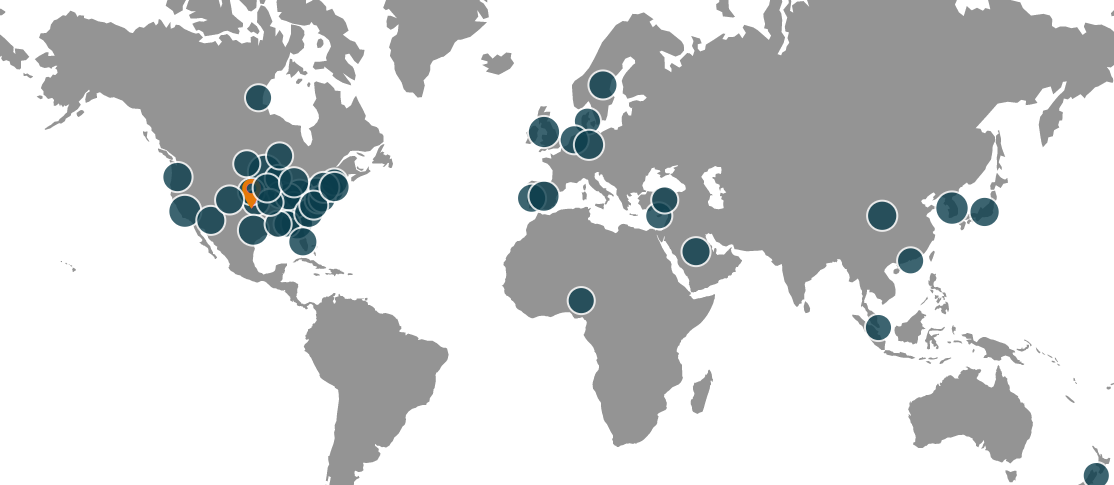Research, Engagement & Creative Scholarship
Research Units
The Center for Retail Design & Innovation (CRDI) within the Retail Merchandising Program is designed to enrich student experiences through industry partnerships and program involvement.
The Center for Sustainable Building Research 's (CSBR) role is to "transform the built environment in ways that provide for the ecological, economic, and social needs of the present without compromising those of the future," and to build eco-literacy in the broader community.
The Digital Design Center (DDC) is a powerful example of the University of Minnesota's pursuit of bringing to life some of its best design and technology ideas, theories, and research in ways that have tangible impacts on the world.
The Minnesota Design Center (MDC) seeks innovative solutions to the design of physical systems such as infrastructure and open space as well as non-physical systems such as public health or service delivery, helping the MN region seize the opportunities that lie in the social, technological, environmental, and economic disruptions of our time.
The Geosocial Visualization Lab (GVL) utilizes various spatial data visualization methods and tools to better understand socio-cultural, economic, political, and demographic characteristics and their relationship to geospatial context.
The Human Dimensioning Lab (HDL) fills a critical void in wearable product engineering through the development of technology and tools for dynamic 3D and 4D scanning, which encourages more robust, data-driven designs for products.
The Wearable Technology Lab (WTL) focuses on the intersection between apparel and new technology and works to expand garment functionality; improve the way we use, manage, and consume clothing; and streamline the design and manufacturing processes of smart clothing and e-textile products.
The Goldstein Museum of Design (GMD) is dedicated to sharing the value of design through its 34,000+ multidisciplinary objects. As an academic teaching museum, we are committed to advancing learning for students as well as the greater community.
The Consortium for Research Practices is dedicated to identifying, researching, and addressing emerging challenges in the built environment, and envisioning solutions through practice-engaged research. The Consortium fosters partnerships between industry and the academy through student-led applied research projects.
